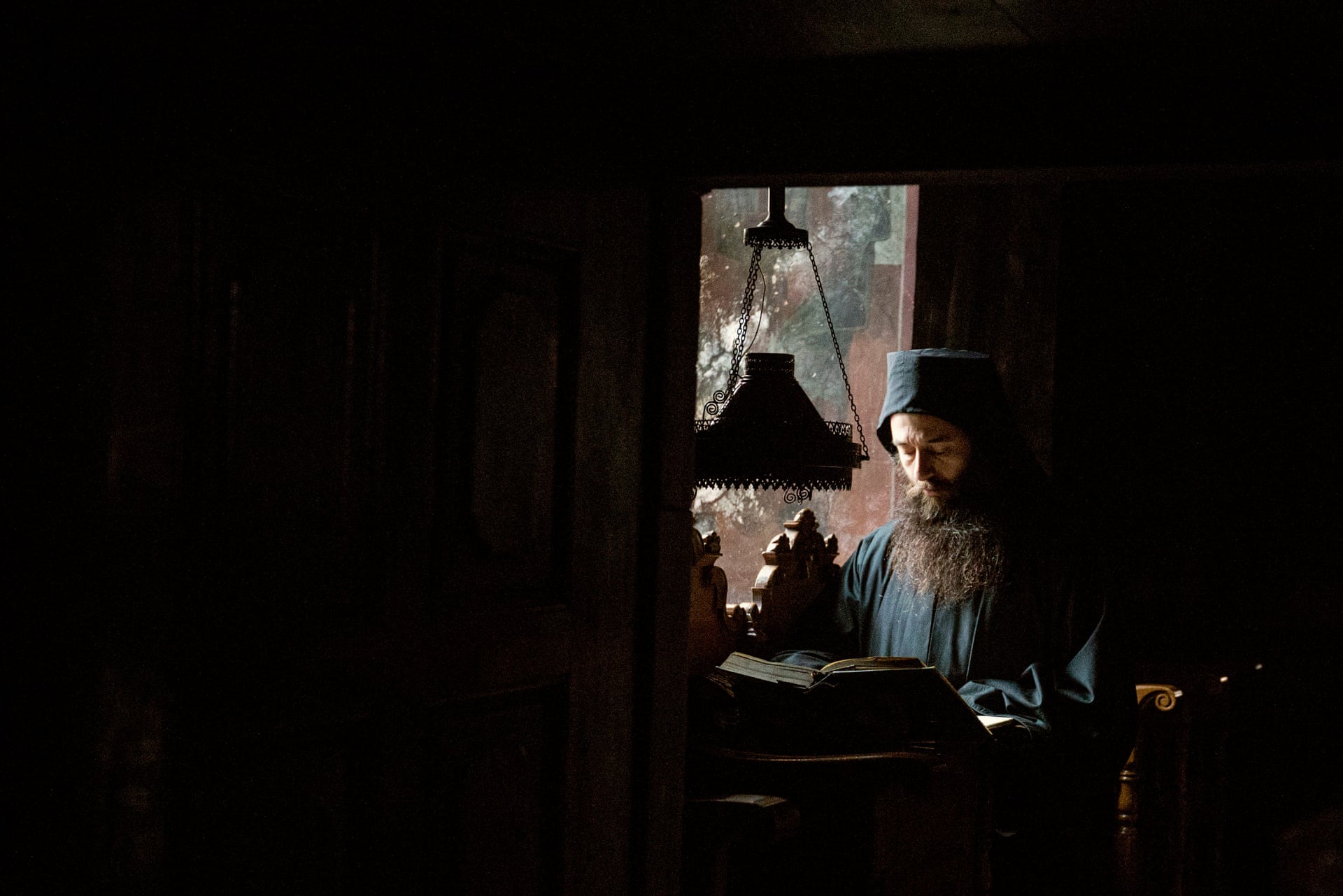Let me now offer another example. This one comes from the writings of a modern Serbian saint, who endured persecution, imprisonment, and torture by the Nazis in the Dachau concentration camp during World War II. His text is a powerful testimony of how a deified person relates to their enemies and tormentors.
He writes:
“Bless my enemies, O Lord. Even I bless them, and do not curse them.
My enemies have driven me into Your embrace more than my friends have.
Friends have bound me to the earth, but my enemies have loosed me from it and demolished all my earthly hopes.
They have made me a stranger in earthly kingdoms and an unnecessary inhabitant of this world.
Like a hunted animal that finds safer shelter than an unhunted one, I have sought refuge beneath Your tent, where neither friends nor enemies can slay my soul.
Bless my enemies, O Lord. Even I bless them, and do not curse them.
They, rather than I, have confessed my sins before the world.
They have scourged me when I have hesitated to discipline myself.
They have tormented me when I tried to flee from suffering.
They have insulted me when I have flattered myself.
They have spat upon me when I was filled with pride.
Bless my enemies, O Lord. Even I bless them, and do not curse them.
When I pretended to be wise, they called me foolish.
When I posed as mighty, they laughed at me as weak.
When I sought to lead others, they pushed me back.
When I hurried to enrich myself, they struck me with an iron hand.
When I wanted to rest, they awakened me from sleep.
When I built my house for a long and peaceful life, they demolished it and drove me out.
Indeed, my enemies have cut me loose from the world and stretched out my arms to Your embrace.
Bless my enemies, O Lord. Even I bless them, and do not curse them.
Bless them and multiply them; multiply them and make them even more bitter against me—
so that my fleeing to You may be irreversible;
so that my hope in men may be severed like cobwebs;
so that absolute humility may reign in my soul;
so that my heart may become the grave of my two evil twins: pride and anger;
so that all my treasure may be gathered in heaven.
Ah, once I am freed from the self-deception that has entangled me in the dreadful web of this deceitful life, I will know that I have no enemies outside of myself.
The one who hates his enemies has not yet learned that enemies are not enemies, but rather harsh friends.
Truly, it is hard for me to say who has done more good to me and who has done more evil in this world: friends or enemies.
Therefore, bless, O Lord, both my friends and my enemies.
A slave curses his enemies, for he does not know. But a son blesses them, for he knows.
For a son knows that enemies cannot touch his life.
Thus, he walks freely among them and prays to God for them.
Bless my enemies, O Lord. Even I bless them, and do not curse them!”
What is the path to deification? It is true that the world in which we live—despite its vastness and the richness of its diversity, creativity, and beauty—can at times feel narrow and suffocating. In all its grandeur, the world remains bound by limits. We inhabit this world without the ability to fully comprehend its mysterious details and deeper meanings.
Although our knowledge continues to expand, the domain of the unknown grows even larger. Nature itself remains unfathomable. Only about 4% of the universe is visible; the rest lies hidden from our sight. 23% of it is dark matter, and 73% is dark energy. It is unseen, yet it exists—and it conceals the most essential mysteries of the cosmos.
According to Heisenberg’s principle, the natural world is elusive and uncertain. Einstein’s theories describe it as relative, while Planck’s theories reveal it to be discontinuous and quantized. In summary, the laws of nature cannot be fully grasped or explained.

The universe is vast and multidimensional, yet we perceive only three spatial dimensions, plus the fourth—time. Under certain conditions, space can contract, and time can expand. Although such phenomena can be scientifically proven, we remain incapable of understanding why the world is constructed this way. The same holds true for the size and dimensions of the universe—whether in the macrocosm or microcosm, they remain beyond our comprehension. We are unable to grasp either the enormity of the cosmos or the infinitesimal nature of its smallest components.
Within the boundaries of this world, we are constantly confronted with our limitations. Although we know much, we do not know everything. Though we wield great power, we cannot accomplish everything. Despite having sharp senses, we cannot see everything. Our instruments allow us to observe the visible, but we lack the means to uncover what is invisible. We have evidence, but no full understanding; we possess knowledge, but not wisdom. Whatever we achieve, we continually feel that much of reality lies beyond our perceptual abilities, beyond our senses, and beyond our power.
Einstein once said that the most incomprehensible thing about the world is that it is comprehensible. Today, we might say the opposite: the most comprehensible thing in the world is that God is incomprehensible. This realization lies at the root of humanity’s innate desire to overcome its limits and rise above its nature. Ultimately, human beings do not feel confined because of insufficient intelligence or limited power. Therefore, increasing intelligence or strength does not solve the fundamental problem of human existence.
True Freedom Through Spiritual Potential
True freedom is not found in physical or intellectual strength but in spiritual potential. It lies not in human power but in the wisdom and strength of God. Humanity must gather itself, humble itself, and purify itself to become receptive to God’s grace. Faith, purity, and humility are the only paths to true transcendence.
Consider the atom: though minuscule, measuring only one-tenth of a nanometer, it contains enormous amounts of energy. Similarly, matter at the nanoscale exhibits rare qualities that remain mysterious to us. Stars, when they collapse into black holes, develop immensely powerful gravitational fields. In the same way, a person becomes stronger and displays a unique version of themselves when they shrink inward—humbling themselves.
The path of humility is a journey toward a different world—the world of God, the world of truth, and our communion with Him: the world of deification.
Deification as Humanity’s Greatest Legacy
Every person carries the potential for deification. This is our greatest legacy, and we must strive to make the most of it. Through His Resurrection and Ascension, Jesus Christ has already deified human nature and offers this potential to all. Deification is not an individual experience but one shared by all believers within the Church, as they engage in the personal struggle to unite with God.
The sensory world—the world of logic, human faculties, and everyday life—resembles a sphere in which humanity is trapped. Beyond the surface of this sphere lies the unknown. At best, transhumanism might expand the radius of this sphere, but it fails to resolve the issues within it. In contrast, through deification, the surface of the sphere becomes transparent, permeable, and transcendent. In this way, a person can both know and experience the mystery of God.















